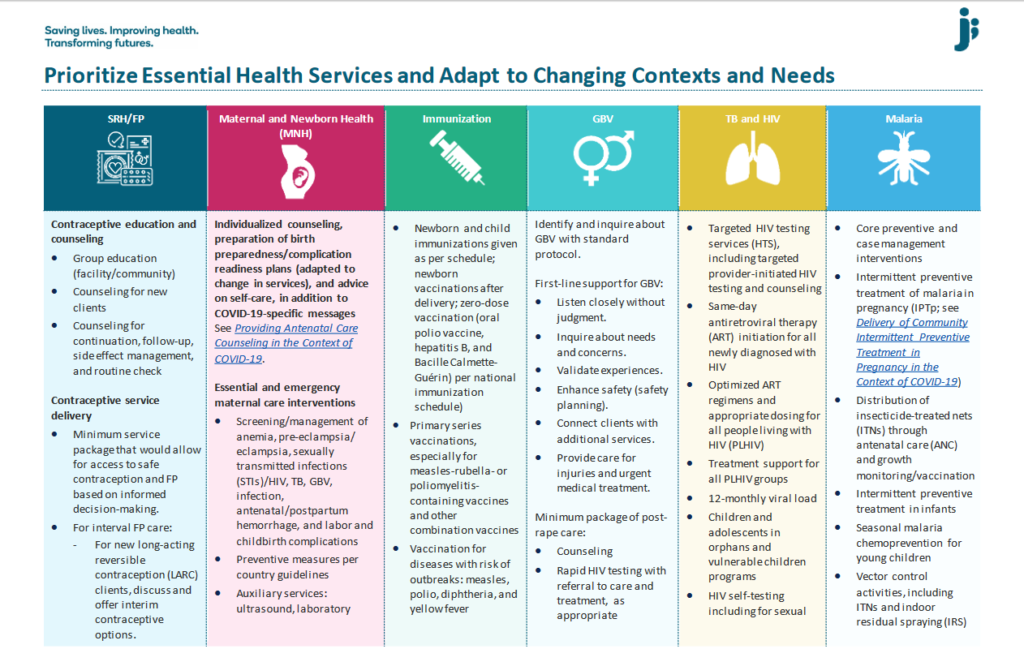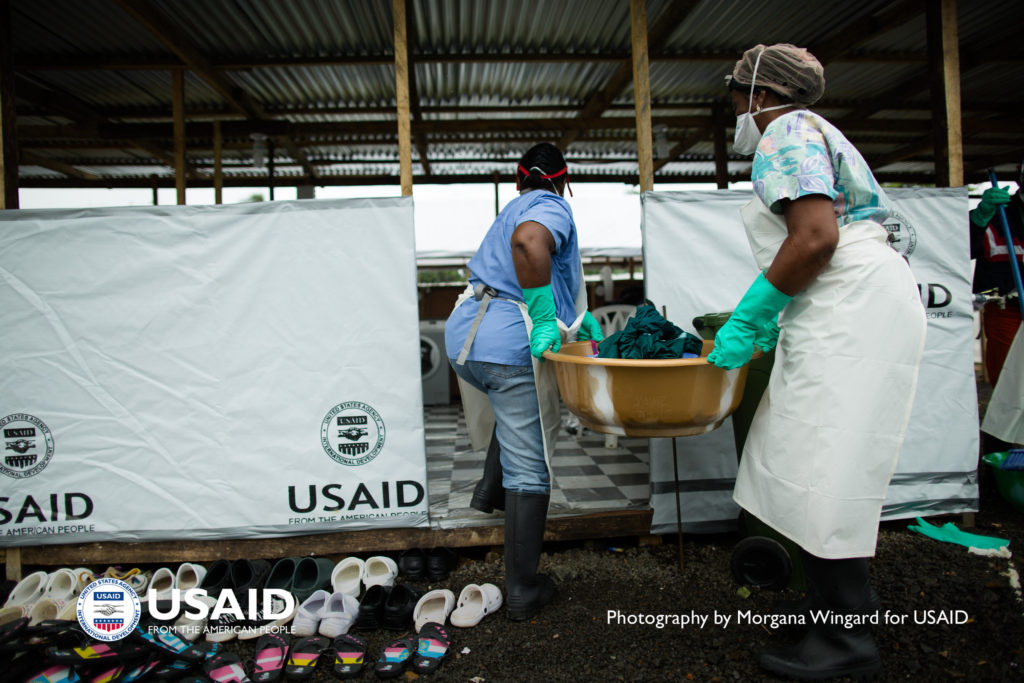Jhpiego’s guide synthesizes global recommendations, current best evidence and critical resources on service delivery during a pandemic. It’s organized to provide specific guidance by technical area, including family planning/sexual and reproductive health.
In response to COVID-19, country leaders and health programs are working diligently to balance the need to direct attention and resources to the pandemic response with the need to maintain the delivery of other essential health services to preserve hard-earned gains in health outcomes and prevent death and injury from non-COVID-19 causes.
Around the globe, all levels of the health care system are having to do more with less as they seek to mitigate the impact of the pandemic while maintaining preventive, promotive and curative health care services. Hard-earned global health gains are rapidly being reversed, and health inequalities are widening.
Whether in high-, middle- or low-income countries, the pandemic is stretching and challenging health systems. At the same time, given the nature of COVID-19 and the need to limit physical interactions where possible, it presents an opportunity to reimagine, redesign and reinvigorate care and treatment, and prioritize decentralized, community-based and client-focused mechanisms of service delivery.
To lessen the blow on fragile health systems, Jhpiego developed operational guidance that synthesizes global recommendations, current best evidence and critical resources to help health care providers, managers and leaders maintain essential health services during and after the pandemic, and ensure families receive the care and treatment they need and deserve.
Click here to access Operational Guidance for Continuity of Essential Services Impacted by COVID-19: A practical guide for program implementation and adaptation
How Is This Guidance Organized?
- Each section/chapter addresses one of the service delivery key priorities from the WHO Maintaining essential health services: operational guidance for the COVID-19 context (June 1, 2020) .
- Cross-cutting guidance for each service delivery key priority that applies across all technical areas is presented first.
- Within each chapter/ section, a column highlights the specific guidance for a technical area (SRH/FP, MNH, Immunization, GBV, TB and HIV, Malaria).

Detailed view of the operational guidance organized by technical area.
What’s Included Related to FP/RH Service Delivery During a Pandemic?
You can find practical recommendations for family planning and reproductive health programs to:
- Prioritize essential health services and adapt to changing contexts and needs
- Optimize service delivery settings and platforms
- Establish effective patient flow at all levels
- Rapidly optimize health workforce capacity
- Maintain the availability of essential medicines, equipment, and supplies
There is also a list of global level resources and guidance documents.






